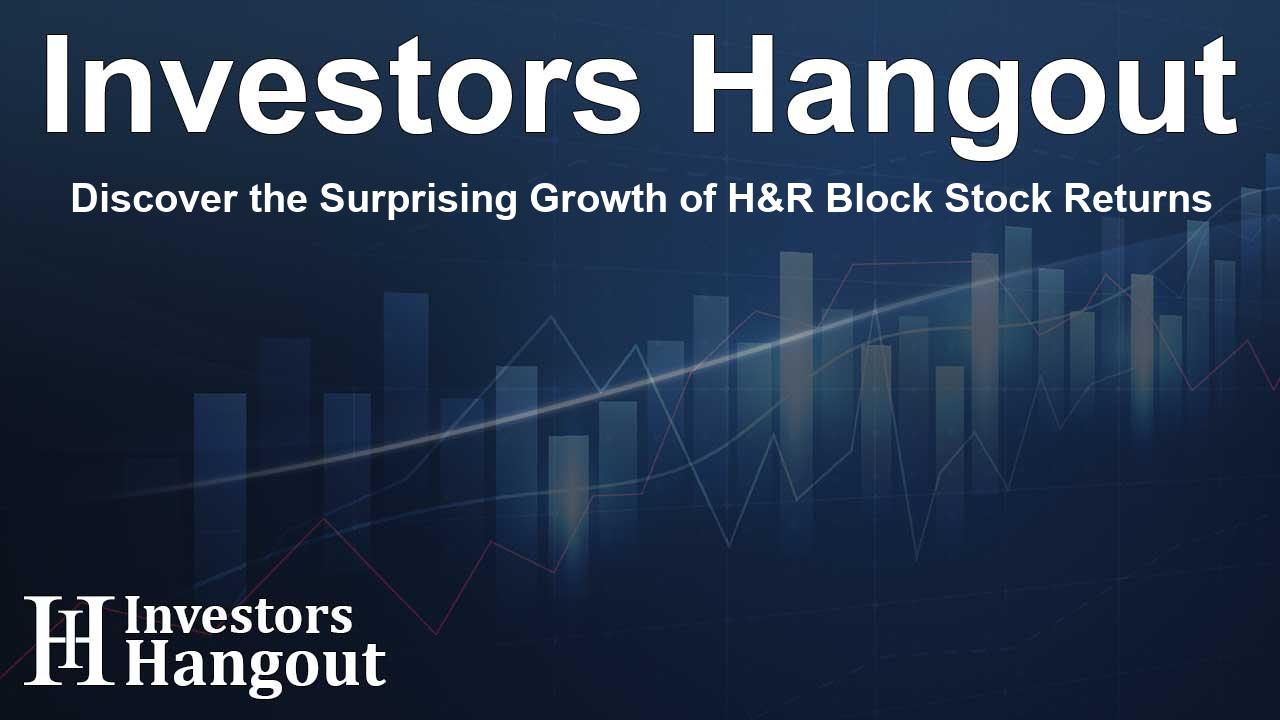Discover the Surprising Growth of H&R Block Stock Returns

Exploring H&R Block's Impressive Returns
H&R Block (NASDAQ: HRB) has demonstrated remarkable growth and resilience over the last five years, achieving an annualized return that exceeds the market by 8.14%. With an average annual return of 21.42%, this company has created significant opportunities for investors.
Investment Growth Over Five Years
Consider this: if you had invested $1,000 in H&R Block five years ago, your investment would now be valued at around $2,637.57, based on the current price of $62.77 for HRB. This growth clearly highlights the benefits of long-term investing.
Key Factors Behind the Growth
The success of H&R Block stems from several important factors. There’s a steady demand for tax preparation services, along with the company’s ability to adjust its business strategies in response to changing market conditions. H&R Block has also expanded its service offerings to better meet diverse customer needs.
The Value of Compounding Returns
One crucial lesson from H&R Block's financial performance is the concept of compounded returns. This principle reveals how initial investments can grow significantly over time if allowed to mature. The sooner an investor begins, the greater their eventual returns can be.
Current Market Standing of H&R Block
Currently, H&R Block boasts a strong market capitalization of $8.76 billion. This figure not only indicates the company’s growth but also reflects the confidence investors have in its future. The reliability and reputation of H&R Block place it in a strong position within the financial services sector.
Insights for Potential Investors
For those considering investing, H&R Block serves as an excellent example of taking advantage of opportunities within stable industries. Its historical performance paints a positive picture, reinforcing the idea that persistence in investing can ultimately lead to rewarding results.
Frequently Asked Questions
What is H&R Block's stock ticker?
The stock ticker for H&R Block is HRB, and it is listed on the NASDAQ exchange.
How much would I have if I invested $1000 in HRB five years ago?
If you invested $1,000 in HRB five years back, your investment would now be worth roughly $2,637.57.
What factors contribute to H&R Block's stock performance?
Key elements include steady demand for tax services, smart business adaptations, and a strong presence in the market.
What does compounded return mean?
Compounded return refers to the earnings generated on an investment’s initial capital, including the earnings that have been added to that capital over time.
Is H&R Block a good investment?
H&R Block’s strong returns and solid market capitalization indicate that it could be a worthwhile investment for those interested in financial services.
About The Author
Contact Evelyn Baker privately here. Or send an email with ATTN: Evelyn Baker as the subject to contact@investorshangout.com.
About Investors Hangout
Investors Hangout is a leading online stock forum for financial discussion and learning, offering a wide range of free tools and resources. It draws in traders of all levels, who exchange market knowledge, investigate trading tactics, and keep an eye on industry developments in real time. Featuring financial articles, stock message boards, quotes, charts, company profiles, and live news updates. Through cooperative learning and a wealth of informational resources, it helps users from novices creating their first portfolios to experts honing their techniques. Join Investors Hangout today: https://investorshangout.com/
The content of this article is based on factual, publicly available information and does not represent legal, financial, or investment advice. Investors Hangout does not offer financial advice, and the author is not a licensed financial advisor. Consult a qualified advisor before making any financial or investment decisions based on this article. This article should not be considered advice to purchase, sell, or hold any securities or other investments. If any of the material provided here is inaccurate, please contact us for corrections.
